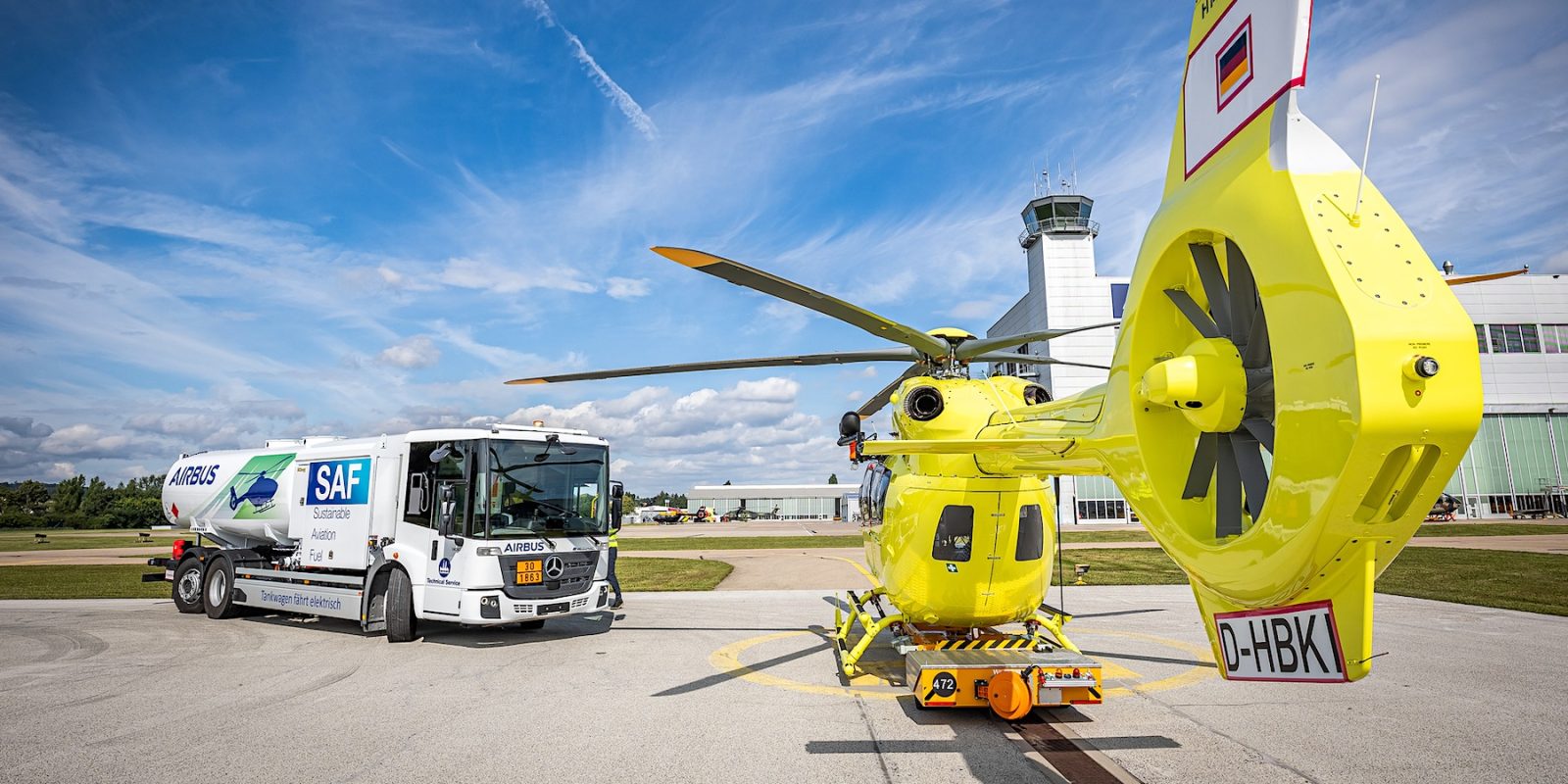
The new Mercedes-Benz eEconic is a first of its kind all-electric tanker truck helping to reduce emissions at Airbus’ Donauwörth facility by pumping sustainable aviation fuel (SAF) into new Airbus Helicopters.
Co-developed with Mercedes-Benz Special Trucks and aircraft support specialists ROHR Spezialfahrzeuge GmbH, this eEconic tanked is fitted with a 16,500 liter fueling rig specially designed to pump sustainable aviation fuel … but that’s not the new truck’s best truck.
The eEconic reduces both on-site emissions and downtime – and not just because EVs need far less maintenance than their diesel counterparts. Airbus Helicopters’ early experiences show that, with the truck’s installed batteries, the SAF tanker can be used in normal operation for a full week without the need for intermediate charging.
Getting it done
The electric tanker’s pump is equipped is operated hydraulically via an electric power take-off system (ePTO). The SAF pump in the tank body also draws on the energy stored in the vehicle’s three 105 kWh batteries (315 kWh total).
Those 315 kWh’s worth of energy also power two electric motors integrated into the Mercedes eEconic’s e-axles that generate a continuous output of 330 kW (up to 400 peak kW, or nearly 540 hp). More than enough to hustle across an airport to top off a rescue helicopter. And, despite the trucks’ relatively long wheelbase of 5.5 meters (approx. 18 feet), the eEconic has a tight turning circle radius thanks to a steered rear axle that also works to ensure it can position itself wherever it’s needed once it’s hustled to where it needs hustled to.
Airbus has committed to cutting their carbon emissions to net zero by 2050, and sees the use of SAF as an important lever here. Today, all Airbus aircraft operated on a 50% SAF blend. By 2030, all ICE Airbus aircraft will be certified to operate on 100% SAF.
Electrek’s Take
With the short distances driven at limited speeds under extreme loads, ground handling equipment at airports present a nearly ideal use case for battery-electric vehicles. That’s a good thing, too — as demand for on-road fossil fuels drops, airports and airlines – historically responsible for about 4% Earth’s global warming – are becoming a bigger and bigger slice of a rapidly shrinking pie when it comes to fossil fuel emissions.
Projects like the Mercedes-Benz eEconic just go to show that EVs have a place in reducing carbon emissions, even while fossil fuels are still in play.
SOURCE | IMAGES: Daimler Trucks.
